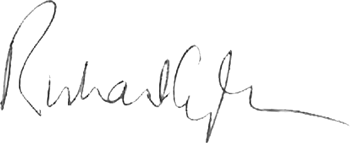One thing that stood out as we compiled the 2013 Power List was its paucity of women. Only eight of the 100, and none of the Top 20, were female. That’s disturbing. Let’s set 8 percent in context. Broad industry numbers are woeful: in the 2013 Fortune 500 list, which ranks the top US companies by gross revenue, women hold just 4.2 percent of CEO positions. This is mirrored in the European Union, where company presidents at 96 of the leading 100 businesses are male. A quick glance at the executive management of the leading companies in analytical science indicates that things are little, if at all, better there.
The picture in academia is brighter. Thirty-eight percent of faculty at US higher education institutions are female. However, there is a “pyramid problem”. At the base, 50 percent of faculty at community colleges are women; this drops to 41 percent at baccalaureate and master’s degree colleges and 33 percent at doctoral-level universities. Within the final category, the more prestigious universities hire fewer women still. It is a (qualitatively) similar picture in Europe; in Spain, for instance, 39 percent of associate professors are women, dropping to 18 percent for full professors. Let’s look at The Analytical Scientist’s record. We have an Editorial Advisory Board of 15, three of whom are women (20 percent). In our first ten issues there were 140 authors and interviewees, of which 32 (23 percent) were female. Nothing to brag about – we need to take measures. However, given these numbers, one might have expected 20 women to be named in the Top 100. Why didn’t that happen?
Perhaps it’s because this aspect of the field is not yet mature. Sue Lunte (this month’s “Sitting Down With” guest and one of the eight women on the Power List) mentions that when she was in grad school (not so very long ago), one in ten students was female while today it is one in two. As the increasing proportion of women work their way through the ranks, the numbers at the top of the pile will gradually increase. It may help explain why academia and this magazine’s contributions from women stand at around 20 percent. However, it is difficult to see how and when parity will be achieved. It is going to take a re-boot of the system, which was set up for men, by men. Perhaps simply changing “the message” is a good place to start: “We need to stop telling young women how hard it is to be a woman scientist and start telling them about how amazing the job is” - Professor Judith Mank, University College London (1).
Richard Gallagher
Editorial Director

